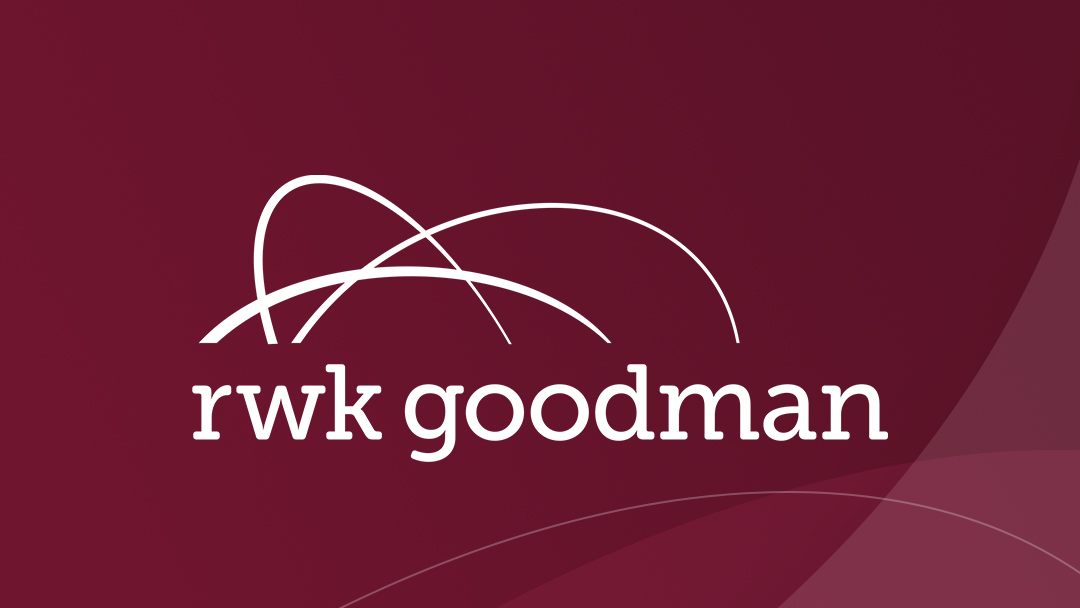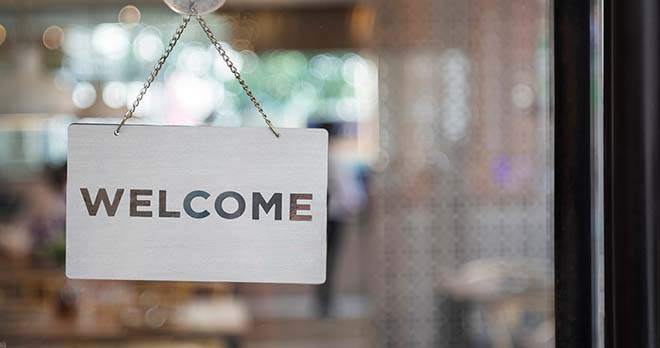How should commercial landlords approach rent reviews?
This time we are talking to Rob Walton from our Real Estate team about rent reviews. We’ve asked him a load of frequently asked questions around rent reviews in the commercial sector for both landlords and tenants that might be useful for them to know.
Liam: So, do you think rent is likely to go up in 2023?
Rob: I think it’s a bit of a tricky question to know the answer to really. If you’ve got an ongoing rent review that’s going to be attached to RPI for example, then your issue is that because obviously there’s a link to inflation. In terms of the current market, I think the commercial market is going to go through a similar downturn as to the residential market. So there’s probably an interesting battle for negotiation between landlords and tenants to be had.
Ed: So if rents were to go up, I mean it might seem an obvious kind of question answer, but why might they be going up right now?
Rob: Well in terms of why they’ve been going up, it’s if you’ve already got an existing lease which is tied into a rent review. In terms of a brand new lease, that’s where you’re negotiating what your rent review will look like and obviously your initial starting rent, that’s where your probable initial negotiation is going to be interesting and that’s where you need some advice from a specialist Surveyor.
Liam: And how often can landlords choose to put up rent?
Rob: This is going to be dictated by your lease. It will go and say exactly what your rent review dates are so that’s your first port of call.
Liam: Ok. So if they’ve already done it once this year, that doesn’t necessarily rule out their ability to do it again?
Rob: No, it depends what your lease says. If your lease says you have a yearly rent review for example, then they can do it once per year. Could be three yearly, five yearly. They only get one bite of the cherry per rent review date.
Ed: Ok, so kind of two questions in one here. Do you need like a new agreement if you’re in the middle of a contract term and there’s a rent review and what’s the difference between a lease renewal and then a rent review?
Rob: Yes, so a lease renewal is something that will come at the end of your term. Now it depends how you hold your lease. If your lease is within projection of the 1954 Act then you’ll probably enter into a lease renewal if you want a new lease that is. But if its outside of that, then your lease could just come to an end and you have to enter into a brand new lease and that’s where you negotiate the terms.
Liam: And what is a Section 13 notice?
Rob: So Section 13 notices are not something we have to worry about for commercial property. They are attached to assured shorthold tenancies, so that’s residential property only. As I am a Commercial Property Solicitor, fortunately I do not have to go into those.
Ed: Great stuff. That makes things easier! In terms of when the rent reviews are happening, how much can landlords put their rent up by?
Rob: Yes, that’s going to be dictated by your rent review clause. It’s going to set out exactly how rent review is governed. So there’s a few ways it can be done. It could be linked to RPI for example or it could be an open market rent. They’re the two most common. There’s also things like turnover rent as well.
Ed: And could you just expand on the RPI rent element. What is that?
Rob: Yes, so RPI is linked to the retail price index which basically is a measure…almost a measure of inflation essentially. As you probably can’t avoid at the moment, that’s exceptionally high. So you’re looking really then at rent reviews that could be 10/15% depending on what the RPI currently is.
Ed: Ok. And could a landlord do something for example like just double the rent straight afterwards. Would that be precluded in any way?
Rob: Well no, it depends exactly what your rent review clause says is how its governed in terms of what it can be increased by because there should be a calculation in there and also for example, if it’s an open market rent then there’s going to be a Surveyor calculating what the property is worth. If its an RPI there’s going to be a mechanism in that lease to calculate it exactly.
Liam: Could landlords ever legal receive a rent review notice from their tenant? Is that a situation that could ever arise?
Rob: Yeah, that’s an interesting point. In terms of whether a landlord undertakes a rent review it is up to them. So you don’t see…tenants can’t forcibly, unless their lease allows for it, which is not very common, can’t forcibly put a rent review in place and generally rent reviews are upwards only. So it’s unlikely that a tenant is going to want to enforce it any case.
Liam: And are tenants able to challenge a rent increase?
Rob: Yes they are, usually. Depending again what your rent review clause says. There is usually going to be a clause at the end which will be, maybe an expert determination or an arbitration clause if you believe it hasn’t been conducted correctly. Now, if it’s an open market rent review then its possible that you’ve had a figure for another Surveyor which you’re not happy with, so you go and challenge that and get your own Surveyor. It is much more difficult with RPI because there’s simple a calculation. So unless that calculation has been done incorrectly, it’s going to be difficult to go and challenge that.
Ed: So we’ve read something about what’s called a rent reduction request. Is that a thing and how might a landlord reject that if they didn’t want to reduce the rent?
Rob: Yeah, so that’s basically…you’ve got that a lot during the period of COVID of course when people were looking to go and reduce their rent so simply land to continue to trade. Because those things are more prevalent when the market conditions are such that a landlord would struggle to go and get another tenant. At that point you could probably go and serve a rent reduction request and obviously see what the landlord has to say. Simply go and argue it. Won’t be able to continue to trade, therefore you are not to come in the property. In the current day, outside of COVID I think they’re unlikely to be accepted unless there is very significant circumstances. Or you’ve got a very friendly landlord.
Liam: And I mean you’ve kind of touched upon that there, but what are the chances of rent being reduced on review?
Rob: Generally there isn’t any chance. It depends what your clause says. The clause would usually say it is upwards only if it’s been drafted well, unless there’s been a negotiation at the start. So there is a possibility depending on how it is worded. If it is simply worded ‘this is a calculation’ or ‘it’s an open market rent review and it’s not upwards only’ then it is possible. Of course, with an RPI it will always go up because there’s always going to be an element of inflation unless we ever get to negative inflation, which, I’m pretty sure that will never happen.
Ed: You mentioned the challenges for tenants not being able to pay rent. Are there are particularly creative solutions to the issue of rent reviews that tenants might find challenging? So for example, you mentioned turnover rents earlier on?
Rob: Yes, again, this is something else that would be in your rent review clause. I mean they can be linked to turnover essentially just linked to how well the tenants company or an individual how well that business is doing and so obviously you could have a percentage of that. So they’re more unusual to go and see. You do see them occasionally depending on what the nature of the property is. So again, that’s the thing, you probably want to go and take specialist advice or if you’re entering into a brand new lease, it is something of a possibility but if you’re trying to link it to turnover because obviously if you are in early days in terms of business and you can link it to how well your business is doing, that’s obviously better for you. But then in the current market I think it’s difficult for a landlord to go and agree to that.
Liam: And what should people look out for on a lease renewal?
Rob: Yes, this is an interesting point at the moment if you’re taking on a brand new lease or your entering into a lease and it’s your negotiation of your rent review clause. Now typically you’d have an open market rent but that’s something that landlords are obviously going to move away from at the moment because of the downturn in the market. So they would certainly want a rent review linked to the RPI. Now because the RPI is so high, that’s very unattractive for tenants. So you’re looking for negotiation essentially. In terms of the tenant’s position they probably want an open market rent from the landlord position or an RPI rent. In terms of trying to find some form of negotiation, there could be something called a cap and collar RPI. So what that means, if you have a top limit and a bottom limit. So you don’t get into the very unhealthy situation where your rent is 10/15% extra or even more because its linked to RPI, you have a cap, say…I don’t know…5-8% and you also have a bottom mark which it won’t go below. So that’s where the landlord has to consider well if I’ve got a long lease and inflation does start going down, well at least I’ve got some security of knowing exactly what the income is going to be.

Subscribe to Legal Thinking
Want to hear more from our podcast?
Find out where you can subscribe and check our our back catalogue right here on our website.








